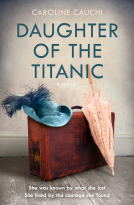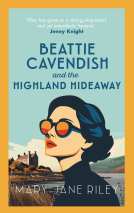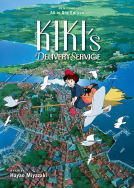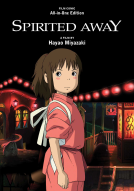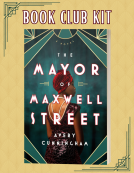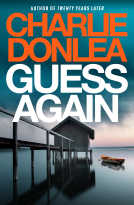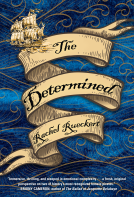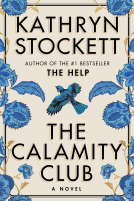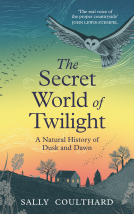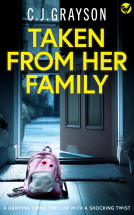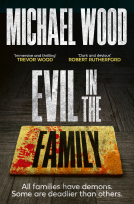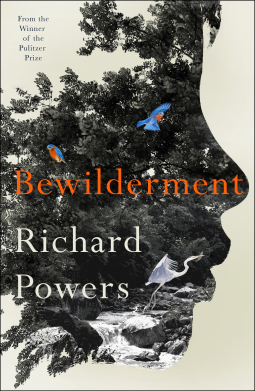
Bewilderment
by Richard Powers
This title was previously available on NetGalley and is now archived.
Send NetGalley books directly to your Kindle or Kindle app
1
To read on a Kindle or Kindle app, please add kindle@netgalley.com as an approved email address to receive files in your Amazon account. Click here for step-by-step instructions.
2
Also find your Kindle email address within your Amazon account, and enter it here.
Pub Date Sep 21 2021 | Archive Date Sep 13 2022
Random House UK, Cornerstone | William Heinemann
Talking about this book? Use #Bewilderment #NetGalley. More hashtag tips!
Description
Picked as one of the 'Best Books of 2021' in the Sunday Times
_________________________________________________
Theo Byrne is a promising young astrobiologist who has found a way to search for life on other planets dozens of light years away. He is also the widowed father of a most unusual nine-year-old. His son Robin is funny, loving, and filled with plans. He thinks and feels deeply, adores animals, and can spend hours painting elaborate pictures. He is also on the verge of being expelled from third grade, for smashing his friend's face with a metal thermos.
What can a father do, when the only solution offered to his rare and troubled boy is to put him on psychoactive drugs? What can he say when his boy comes to him wanting an explanation for a world that is clearly in love with its own destruction? The only thing for it is to take the boy to other planets, while all the while fostering his son's desperate campaign to help save this one.
Available Editions
| ISBN | 9781785152634 |
| PRICE | £20.00 (GBP) |
| PAGES | 256 |
Average rating from 162 members
Featured Reviews
A singularly strange and wonderful book, a tragic story of loss on a personal and also a human scale.
Theo is a scientist used to a methodical approach and tenacity, even when there is no way to verify his experiments looking for life on other planets.
First his wife, then his son, show him an unbounded compassion for the disintegrating life on earth, and lead the way to an understanding of life beyond logic.
The tenderness, the love and the pain for the state of the world come through so strongly, until Theo is left alone finally to piece together meaning from so much destruction.
Transformative and revealing, this books makes you think more deeply and pull your loved ones a little closer.
 Heather N, Librarian
Heather N, Librarian
This is a most intense, extraordinary book about a nine year old boy who is desperate to save the planet. His mother has died and his father is struggling to keep him at school and on an even keel. The chance to take part in an experimental therapy brings elation, fear and bewilderment. The writing is engaging, impactful and truly shocking.
 Jamie J, Media/Journalist
Jamie J, Media/Journalist
Thank you to NetGalley and the publishers for an advanced copy of this book.
I absolutely loved this book - utterly captivating from start to finish. The writing is precise, considered, but hugely heartfelt. There's a tremendous amount of warmth for the characters and, considering the subject matter, there's a strong vein of humour throughout.
The relationship between Robbie and Theo is drawn with great specificity and sensitivity. Their journeys back to one an another, after the death of Robbie's mother, is beautifully told. I was moved on more than one occasion, especially by Theo's struggle to communicate with his son.
I found the lyrical descriptions of the planets they both visit captivating, and haunting. I've read a number of climate change novels, and often find them so laden with doom that it's almost impossible to keep reading. Richard Powers manages to balance the sense of looming catastrophe with a great deal of levity - the journeys to other planets are magical and transportive.
I found the last act of the novel really quite upsetting, unexpectedly so. Part of me wondered whether the denouement was entirely necessary. It felt a little more savage than the rest of the book, though I understand why the plot moves in the direction it does.
All in al, it more than earns its place on the Booker Longlist. It's a book I am sure I will return to, and one that lives long in the memory. I've not stopped thinking about it since I've finished it. A beautiful, utterly captivating, haunting work.
'Bewilderment' was one of the top 3 books I wanted to read in 2021 and I was beyond thrilled to be approved to read an ARC thanks to NetGalley.
I was blown away by 'The Overstory' and had high hopes for Powers' latest. I was not disappointed. This is a remarkable novel. What stood out for me was the desperate sense of increasing panic regarding the state of the environment and the impact of climate change. It explores both the arrogance of humanity ironically while exploring its insignificance in the universe. This novel is timeous. While I was reading this the IPCC report on climate change was published. The impact of humanity on the environment is startling: with a 70% decline in the animal population in the last 50 years.
The writer explores these enormous issues through the close examination of the relationship between a father and his son. Theo is a young widowed father trying his best to look after his son, Robin, who struggles to conform to the school system. The exploration of the labelling of individuals and the need to medicate anyone who doesn't fit into what society decides is 'normal' is profound.
''I wanted to tell the man that everyone alive on this fluke little planet is on the spectrum. That is what a spectrum is. Iwanted to tell the man that life itself is a spectrum disorder, where each of us vibrated at some unique frequency in the continuous rainbow. Then I wanted to punch him. I suppose there is a name for that, too.''
This is a novel that is incredibly well structured. Not a word is wasted. It is wise. It is urgent. I can't wait to read a hard copy so that I can highlight all the beautiful quotations.
I whole-heartedly recommend this novel.
 Paromjit H, Reviewer
Paromjit H, Reviewer
Richard Powers latest offering is a more human, ambitious, profoundly moving, genre defying novel that echoes, consolidates and moves on from The Overstory, a blend of science, fact and fiction. At its core is the incredible bond and love between a widowed father, astrobiologist at the University of Madison, Wisconsin, Theo Byrne, and his bright, kind, if emotionally volatile, troubled 9 year old son, Robin. Both are grieving the loss of wife and mother, birdwatcher Alyssa 'Aly', passionate environmentalist and activist, who died in a accident, still looming large in their lives. It is set in a U.S. in a near dystopic future, mirroring contemporary realities, with a populist unnamed President emulating Trump, in a world teetering under a host of issues, such as climate change and animal extinction, cuts in scientific research budgets, with a civil war averted merely because of the bewilderment of the population.
Theo is struggling to raise his son, Robin faces being thrown out of school that wants him medicated into becoming a more manageable student, something that Theo is against, there have been multiple 'explanations' of Robin's 'condition', including being on the spectrum, Theo feels that psychoactive drugs are not the answer. He takes Robin camping, the two of them captivated by the possibilities of life beyond earth, imagining and speculating about what could be on other planets. Theo ventures towards an experimental approach for Robin to help stabilise him, overseen by a friend of Aly's, a technique of using real time neural imaging and AI mediated feedback to help Robin manage his emotions and thought processes by replicating the more desired qualities of his mother, using her as a model template for behavioural training. This really helps Robin, he becomes an activist, campaigning and lobbying for what really matters.
I really felt for Theo when it came to responding to the innocent and idealistic Robin's bafflement at humanity's insanity and self destructiveness when it comes to the environment and the multitude of life that comprise our complex eco-systems, allowing the planet to reach such a crisis point. There is little in the way of answers to the eco-challenges we face on earth, this is a heartbreaking and despairing read in so many ways, but what shines in this novel is the depth and intimacy of Theo and Robin's father-son relationship, the nature of human consciousness, and the importance of all life on earth. I hope many readers do not get put off by the science in this book, because this is both thought provoking and inspiring, and I loved it. Highly recommended. Many thanks to the publisher for an ARC.
 Thomas V, Bookseller
Thomas V, Bookseller
Hard to admit when you're working in the bizz of books for 10+ years and haven't read a single word by Richard Powers up to now.
So glad I finally did. This book tells a story which seems simple on the surface but it contains everything: life and death. Young and old. Nature and politics. Yesterday, today and tomorrow. What goes on in your head and every single galaxy out there.
Five stars. Easily!
 Stephen D, Educator
Stephen D, Educator
I was very excited to read Richard Powers' latest book having loved his previous novel, 'The Overstory'. 'Bewilderment' shares many of the same concerns as 'The Overstory' - in particular the rapid destruction of our planet - but approaches these in a new and original way, and in a much more compact form.
'Bewilderment' is set in what appears to be the very near future, and is narrated by Theo, an astrobiologist engaged in a search for other Earth-like planets that might support life. Theo's wife Alyssa, an animal-rights campaigner, has died, leaving him to bring up their nine-year-old neurodivergent son, Robin alone. Robin shares his late mother's concern for the destruction of the natural world. At the start of the novel, Theo is resisting calls from Robin's school principal to give him psychoactive drugs; instead, Robin ends up receiving an innovative form of neural feedback treatment using brain patterns from Alyssa, with unforeseen consequences.
This is such an impressive novel, in so many ways. First and foremost, it is a beautiful story of a father-son relationship. Theo always wants the best for Robin but also feels inadequate as a parent compared to his memory of Alyssa, and this absence is at the very heart of the novel. Theo and Robin's conversations are sweet and often very entertaining but also profound. The tenderness of this relationship contrasts with so much of the darkness surrounding it. Robin becomes an increasingly prophetic figure, offering a radical, almost messianic zeal in response to the apathy and wanton destruction of the planet he sees around him. In his innocence, candour and fervour, he resembles Antoine de Saint-Exupéry's Little Prince, and increasingly, rather than wondering why Robin isn't more like us, the novel compels us to ask why we aren't more like Robin.
The novel is also a great piece of science writing - Powers manages to write about ecology, neurology and space exploration entirely convincingly, including very plausible descriptions of developments in these fields that haven't actually happened yet, which allows him to pose some weighty and thought-provoking ethical questions. As well as this, there is a real sense of urgency throughout the novel, which occupies somewhere between the present and the apocalyptic - the world Powers describes still feels recognisable, but is significantly closer to environmental and political collapse, a world in which, "against shamelessness, outrage was impotent.". In this way, Powers suggests that apocalypse may not be as far away as we like to imagine, and the novel burns with righteous anger at the greed and cynicism which is bringing us to this stage.
This will surely be one of the strongest contenders for this year's Booker Prize, and should be recognised as a classic work of ecofiction.
Thank you to NetGalley and the publisher for sending me an ARC to review.
 Benjamin C, Bookseller
Benjamin C, Bookseller
An exceptional look at grief, astrobiology, environmentalism and the father-son relationship. All typical themes but addressed with so much tenderness, wit and heart. A punch-in-the-gut ending left me in tears.
What’s bigger, outer space or inner?
A wonderful, wonderful, wonderful book. I feel like I should stop there and just tell you all to read it!
Bewilderment is about a number of different issues, science, politics, research, our planet, other planets, bereavement but at its heart it is a story about a man's intense love for his son and the hope of a better life for his son.
The book is heavy on science and astrobiology which I know has put a lot of people off whilst others have found the level of detail unnecessary. I agree to an extent however I feel the science is integral to the story, the exploration of the world beyond us but also an exploration of a world which clearly does not understand Robin.
Theo's constant doubts about his own abilities as a parent are prevalent throughout the novel and I don't think there are any parents out there who could not resonate with this aspect of his character.
It is a relatively short novel (less than 300 pages) which I got through fairly quickly (despite, on occasion, having to read the scientific parts more than once).
It has been longlisted for the 2021 Booker Prize which is certainly not a surprise. I would encourage everyone who is fascinated by the planet and parenting to read it!
Thanks to Random House UK, Cornerstone and Netgalley for an ARC in exchange for a honest review
 Sue B, Reviewer
Sue B, Reviewer
My first Richard Powers novel and it certainly won’t be the last. I thought it beautifully structured and the right mix of science and story. Astrobiologist Theo is left to bring up his young son Robin alone, his vibrant and charismatic wife having died just before the novel begins. He struggles to know how best to treat Robin - an overwhelmingly sensitive soul who is not coping well at school, wants only to explore the natural world and is desperate to hold onto his few and fading memories of his mother. Homeschooling and enrolment in an experimental neurological study might hold the solution for his difficulties and Robin embraces both eagerly.
The science and astroscience elements to the novel are pitched at just the right level for me to be pleased that I might have grasped a little of it. It certainly makes for riveting reading, along with aspects of climate change, animal rights, Trumpesque cuts to research budgets and hints of social unrest.
I defy anyone to be unmoved by this story of a father and son’s grief and their love for each other and the world around them - their days hiking and birdwatching in the wild and nights camping under the stars are my favourite parts of the book. Just as importantly, we are invited to witness a child’s incomprehension of what humans are doing to ourselves, other ‘sentient beings’ and our planet. Strong stuff and highly recommended.
Powers' last book, 'The Overstory' is a favourite of mine. 'Bewilderment' doesn't share its sweeping grandeur, but I sense intentionality in the contrast between these two books, in the way this one focuses simply on a boy and his father.
It is, of course, beautifully written. Powers is a nature writer as well as a novelist. His love of the wilderness and wildlife of his home country is palpable. His pain is easy to share in. This is a novel about empathy, more than anything else.
I was charmed by the story itself, and I raced through while trying to slow down enough to savour it. My heart broke a little. And in its ending, I could not tell the difference between hope and despair.
(With thanks to Random House and NetGalley for this ebook in exchange for an honest review)
The Overstory was a phenomenal book that still has me thinking some years later; now Bewilderment! How to describe this book is not straightforward. This is a multi layered story weaving together so many important issues.Theo is an astrobiologist exploring the solar system for signs of life and searching for meaning whilst caring for his son Robin. Robin struggles to integrate in school and feels passionately about the demise of so many living creatures across the planet and he too is searching for meaning .He views and artistically captures the fragility of wildlife and it’s crucial role in planetary survival, Offered the chance to help Robin with an experiment involving the brainwaves of his dead mother( a form of AI) the young boy begins to change and the story really develops. This is a tale of love and life and how as a species we are losing site of what is most important around us- the natural world all around us. The power and control of the internet and smart phone is an element of the story and our denial of the global environmental changes but there is a bigger message in my interpretation and that is about the “powers that be “ wanting to control and manipulate , the conflict between technology and the impact on nature, and the victimisation upon those who dare to speak out or take an alternative route . The scene with Theo and Robin being confronted by two policemen was simple in its form but magnified a global issue about oppression . But ultimately this is also a tale about a father’s love for his son and how to support him ( often through tough choices ) navigating a world that doesn’t make sense and within a “ system” that is afraid to understand.This is a book you need to talk about with others to open those , “what if …” and “why don’t we ..?” questions . I’ll return to this book as like it’s predecessor it has certainly impacted on my thinking and desire to be even more proactive in my environmental considerations.
 Neil G, Reviewer
Neil G, Reviewer
I once met Richard Powers at a book reading/signing for The Overstory in London. We had a few minutes to talk and we talked about our mutual love for nature - him writing about it and me photographing it. He doesn’t sign his books but rather writes a dedication on a piece of paper that you can keep with the book and I left our encounter with one of these bearing the words “From one nature lover to another”.
This isn’t name dropping, by the way. It’s more by way of introduction to the fact that, as in The Overstory, nature plays a key role in Bewilderment. In fact, reading those two books can’t help give you the impression that Richard Powers has rather lost faith in humanity. But I should qualify that observation by narrowing it down to humanity’s leaders. When it comes to ordinary people, our narrator at one point says, ”My wife would have known how to talk to the doctors. Nobody’s perfect, she liked to say. But, man, we all fall short so beautifully.”
Our narrator is Theo Byrne, an astrobiologist searching for life on other planets. You’ll have guessed from the quote above that he is no longer with his wife and this is because she died not long before the book starts leaving him to raise their son, Robin, on his own. And Robin is an unusual child: he lives his life on a hairs-width border between creative calm and destructive anger. Theo describes Robin’s condition like this:
”I never believed in the diagnoses the doctors settled on my son. When a condition gets three different names over as many decades, when it requires two subcategories to account for completely contradictory symptoms, when it goes from nonexistent to the country’s most commonly diagnosed childhood disorder in the course of one generation, when two different physicians want to prescribe three different medications, there’s something wrong.”
You will note that this paragraph moves very quickly from Robin’s condition to a criticism of the country. Bewilderment is set very slightly in our future but with several things pushed forward towards some kind of dystopia. The focus is purely the USA, but this is a USA where we have ”the White House’s new decree requiring everyone in the country to carry proof of citizenship or visas”, a USA with a president who shifts election dates until he is confident he can manipulate the system enough to win a second term (this president is not named but is renowned for his tweets - enough said). It’s not just politics that is slightly different - climate change and associated freak weather events, transfer of viruses from the food chain into humans: the natural order of things is breaking down rapidly.
When Robin’s anger erupts at school one day, it sets in motion a chain of events that lead to Robin undergoing some experimental treatment in an attempt to avoid state intervention and psychoactive drugs. Here, an early mention of the classic sci-fi short story “Flowers for Algernon” really comes into play because Bewilderment makes direct reference to that story and then follows the same basic plot. This, I assume, is a very deliberate choice by Powers: anyone who knows the original short story will have a good idea of the overall story arc. I'd recommend reading that short story if you don't know it.
The novel explores external and internal versions of several ideas. For example, Theo analyses spectroscopic signals from other planets building models which will predict the atmosphere, and therefore chance of life. He trains these models on known planets including Earth with the data deliberately degraded to model seeing Earth from a huge distance. Compare this with Robin’s treatment which involves training his brain to develop emotional control by matching it to signals recorded from other people’s brains. Then the novel also makes the point about the vastness of space and we read ”Which do you think is bigger? Outer space…? He touched his fingers to my skull. Or inner?”. At one point we read:
"They share a lot, astronomy and childhood. Both are voyages across huge distances. Both search for facts beyond their grasp. Both theorize wildly and let possibilities multiply without limits. Both are humbled every few weeks. Both operate out of ignorance. Both are mystified by time. Both are forever starting out."
If, like me, you have read Powers other novels, there are references to or reminders of many of these throughout the book. Perhaps the two most obvious are the way Bewilderment continues the themes of The Overstory, and the way Robin’s response to his treatment (and his experience at the hands of the world’s media) echoes Thassadit Amzwar from Generosity. I also found myself thinking about The Goldbug Variations quite a bit. My attention was grabbed by the mention of sandhill cranes that feature in The Echo Maker. I also though quite a bit about a comparison with Gain where a key idea was how well meaning, but necessarily ignorant, business decisions taken over the course of many years can gradually evolve into creation of a toxic environment.
This is by no means a long book (less than 300 pages), but I have barely scratched the surface and I’ve missed out many things that are key to any proper description. My only advice, really, is that you read the book for yourself.
 Graham F, Reviewer
Graham F, Reviewer
"They share a lot, astronomy and childhood. Both are voyages across huge distances. Both search for facts beyond their grasp. Both theorize wildly and let possibilities multiply without limits. Both are humbled every few weeks. Both operate out of ignorance. Both are mystified by time. Both are forever starting out."
The latest novel from the author of Booker shortlisted “The Overstory” and one which I feel will appeal strongly to the many fans of that book.
Whereas the etymology of Bewilder implies being lured into the wild and left astray and confused as a result, the sense of this book is of an encounter with the wild (both wilderness on earth and the wilderness of outer space) as a way to make sense of our own world and to think of the implications for how we should change the current trajectory of our society.
The novel is also a rewrite of a classic science fiction short story.
The book is set in what is best perhaps described as a very near future dystopian extrapolation of 2021 USA – a world in which an (unnamed) Trump remains in power and turning his rhetoric into hard action and where various interrelated climate, species-extinction and human-pollution crises are heading inexorably to a tipping point.
The book is narrated in first person by Theo Byrne (his surname he notes derived from Bran – the Irish for raven). After a slightly wild youth, Theo found his métier in astrobiology and the love of his life in Aly(ssa), a fiercely effective and committed environmental (particularly animal right) lobbyist and activist, with a love of birdwatching as a hobby. He thinks of her as “compact and planetary” (after a Neruda Sonnet).
"As an aside the Sonnet is Number XVI which opens (this is not quoted in the novel)
I love the handful of the earth you are.
Because of its meadows, vast as a planet,
I have no other star. You are my replica
of the multiplying universe."
And this I think is very important to the plot (and hence I am sure Power’s inclusion of it) as Theo works in the search for exoplanetary life. His specialty is around the analysis of spectroscopic signals from planets which reveal the gases in its atmosphere.
In particular he models theoretical life bearing planets and the gases they may admit (so that planetary searchers can know likely signals to search for ). In a clear nod to Aly’s birdwatching his work is referred to as the Byrne Alien Field Guide – “A taxonomic catalog of all kinds of stereoscopic signatures collated to the stages and types of possible extraterrestrial life that might make them”. For Theo the real driver is to understand if life is almost nowhere (with Earth a genuinely unique case) or almost everywhere – and to understand why some people for religious or other reasons would actually much prefer the former to be the case.
At the time of the novel, Aly has died in a car crash (seemingly avoiding an opossum, but killing herself and her unborn child) and the bereft and hapless although well-intentioned Theo is left alone to bring up their son Robin (named after his parent’s “national” bird – which they used to signify the beauty in the everyday in their marriage).
Robin is an unusual child – best I think described by Theo in a passage which I think gives a good sense of Theo and his life views as well as Robin, and is also important to the plot of the book).
"I never believed in the diagnoses the doctors settled on my son. When a condition gets three different names over as many decades, when it requires two subcategories to account for completely contradictory symptoms, when it goes from nonexistent to the country’s most commonly diagnosed childhood disorder in the course of one generation, when two different physicians want to prescribe three different medications, there’s something wrong."
"The suggestions were plentiful, including syndromes linked to the billion pounds of toxins sprayed on the country’s food supply each year. His second pediatrician was keen to put Robin “on the spectrum.” I wanted to tell the man that everyone alive on this fluke little planet was on the spectrum. That’s what a spectrum is. I wanted to tell the man that life itself is a spectrum disorder, where each of us vibrated at some unique frequency in the continuous rainbow. Then I wanted to punch him. I suppose there’s a name for that, too."
The book starts around Robin’s 9th birthday – with him struggling at school, Theo takes him on a camping trip in the wild – there the two stargaze, remember Aly and say and discuss her “secular prayer” (May All Sentient Beings Be Free From Suffering), play Wildlife bingo and discuss Fermi’s Paradox
"I lay in our tent that night, thinking how Robbie had spent two days worrying over the silence of a galaxy that ought to be crawling with civilizations. How could anyone protect a boy like that from his own imagination, let alone from a few carnivorous third-graders flinging shit at him? Alyssa would’ve propelled the three of us forward on her own bottomless forgiveness and bulldozer will. Without her, I was flailing."
They play a game Theo has invented as a distraction for Robin – whereby he describes an imaginary but plausible life-bearing planet, hugely different from Earth and our own definition of life, and the two travel there together in their imaginations and read a classic science fiction short story “Flowers of Algernon” (which is hugely significant for the plot of the novel – in fact effectively is the plot of the novel).
When they return home, Robin, who struggles to understand others and to control his temper, is suspended after an incident with a classmate the authorities put pressure on Theo to allow some form of chemical treatment for Robin.
Desperate to avoid this, Theo approaches an old friend of Aly’s, a scientific researcher who is experimenting with the (real-life) technique of Decoded Neurorfeedback – in simple terms training subjects to control their emotions and thinking patterns by learning how to reproduce neural activity with visual aids; and particularly by learning to reproduce the activity of other subjects with desired traits. Theo and Aly were guinea pigs at an early stage and once Robin shows an aptitude and enthusiasm for reproducing the neural patterns, the researcher uses Aly’s thought patterns to train him to deal with his condition.
Initially these inspire Robin to turn his frustration and anger at the human race’s terrible treatment the other sentient beings with which it shares a home, into effective campaigning – inpsired partly by his father (who is lobbying against government plans to cut off the funding for exoplanet researches), partly by a Greta Thunberg type character who Robin adores but mainly by his mother (who increasingly he believes is behind him in his head). The trajectory of what happens to Robin though is tragically predictable from the seed-story.
The book has the same strengths which made “The Overstory” much loved. It has the same motivations and world-view (here perhaps more of a worlds-view) as “The Overstory”, the same rather folksy setting and writing, the same embrace of the wonder of nature, the same rather cynical view of mankind, the same huge range of ideas, and the same passionate and didactic presentation of them. If there is a difference it is in the length – whereas Overstory was rather sprawling, this can feel sometimes like some ideas are picked up and discarded.
I do also feel the book has many of the weaknesses of “Overstory” also. None of Robin, Aly or Theo are particularly convincing or rounded characters – feeling perhaps a little more caricatures functioning as plot-vehicles. For a book which is fascinated with the life of other terrestrial life forms and the possibility of extra-terrestrial life and particularly how both differ fundamentally from mankind – the book is spectacularly uninterested in (or seemingly aware of) any Earth countries or human cultures other than the USA. I also did not like the anti-Christian barbs.
I was reminded too of some other novels.
Like Salman Rushdie’s “Quichotte” the protagonists read a very famous (and IRL) science fiction short story (actually its two short stories in Quichotte) and the plot of the book then explicitly follows that short story. And both books are in part a homage to science fiction and how this much-maligned genre tells us something about our world today and particularly our future.
I had strong overtones of Max Porter’s “Lanny” (maybe even Jesse Ball’s “Pew”) in the special child revealing the truths about the absurdities and cruelties of the adult world.
And the focus on absence/disappearance (here a mother, a pet dog, and of course the Fermi lack of alien contact) as a metaphor for species extinction is a strong echo of Richard Flanagan’s “Living Sea of Waking Dreams”.
Overall I found this a very impressive book.
Widower Theo Byrne is young astrobiologist who searches for life on other planets dozens of light years away. He raises an unusual nine-year-old son Robin. Robin's thoughts and feelings are deep, he loves animals and nature. Unfortunately he also has some behavioral issues.
Theo tries to help his son, but the only solution he gets is to put Robin on psychoactive drugs and the other is to send him to another planet. And Robin just wishes to save this one.
The book is full of questions about our brutal destructive world, full of climate changes, illegal immigrant issues, pandemics and politics, all so overwhelming for sensitive people.
The Bewilderment is engaging, visionary and formidable novel. Narrative is almost poetic. Richard Powers captivated me with The Overstory, and with The Bewilderment is the same and it is to no one surprise that the book is longlisted for the 2021 Booker Prize. He is an outstanding and persuasive author.
Profound, yet provocative read for all nature lovers.
The Overstory, Richard Powers' previous novel, was my favourite novel of 2018. It is likely this new novel will be one of my favourites of 2021.
Like The Overstory, Bewilderment is concerned with the environment, ecology, and the advancements of science and how they impact upon our lives.
In this novel we meet astrobiologist Theo and his nine year old son Robin who are trying to survive following the death of Robin's mother Aly in a car crash. They retreat to the wilderness and imagine what life might be like on other planets. They watch the wildness of our world, in an near contemporary but somewhat different future in which a Trumpian president governs America and children are prescribed medication by Big Pharma who attempt to pigeonhole blossoming and unique minds of the young into simplified boxes. On their journey they meet a colleague of Aly's who brings Robin into a clinical trial to stabilise his emotional discordance.
This is heart-breaking and beautiful tale of a father and son that resonates deeply. Once again Richard Powers at the top of his game has written another masterpiece.
 Reviewer 395432
Reviewer 395432
…the bewilderments of the eyes are of two kinds, and arise from two causes, either from coming out of the light or from going into the light…
—Plato’s Allegory of the Cave
"But where is everybody?"
—Enrico Fermi
Bewilderment fits into a very specific niche genre that just happens to be my catnip: smart literary fiction, with some crunchy yet accessible philosophy, lifted out of the every day by speculative or fabulist elements. Stories still tethered to reality but floating just high enough above it to alter the view. Even better if it’s both intellectually and emotionally engaging.
Theo is a recently widowed astrobiologist raising a young son, Robin. The boy has multiple diagnoses for behavioural issues for which Theo refuses to medicate him, opting instead for an experimental neurofeedback treatment, with unexpected results.
Interspersed throughout the novel are invented alien worlds that Theo describes to Robin, possible solutions to the Fermi Paradox—if the universe is really big and really old, surely intelligent life would have evolved more than once, so where is everybody? These worlds range from sweet and sunny to darkly disturbing. Robin, meanwhile, develops a deep empathic connection to the natural world, with a child’s curiosity and dismay at growing up in a time of climate change.
These twin concerns—the ‘where is everybody?’ puzzle over intelligent extra terrestrial life, and the small matter of our own species’ impending potential self-destruction—expose the ugly, hubristic anthropocentrism that holds us back from addressing them. But this novel doesn’t bend too far into cynicism; it is a moving, intimate, father-son drama (if anything, some readers might find it a bit too sentimental, but I thought the balance was mostly just right).
Powers tips his hat to many works of sci-fi here, like Flowers for Algernon which is the template for Robin’s story, and the little homages of the various alien worlds (I saw nods to Katherine MacLean, Ted Chiang, Liu Cixin, among others). He avoids the sententious tone that I found really off-putting in his previous novel, The Overstory, in favour of a simple, direct first-person voice that conveys filial love above all. A deeply satisfying read.
Readers who liked this book also liked:
Created by Hayao Miyazaki
Comics, Graphic Novels, Manga, Sci Fi & Fantasy
Studio Ghibli Library
Arts & Photography, Comics, Graphic Novels, Manga
Silvia Moreno-Garcia
Historical Fiction, Literary Fiction, Sci Fi & Fantasy
We Are Bookish
Historical Fiction, Literary Fiction, Multicultural Interest
